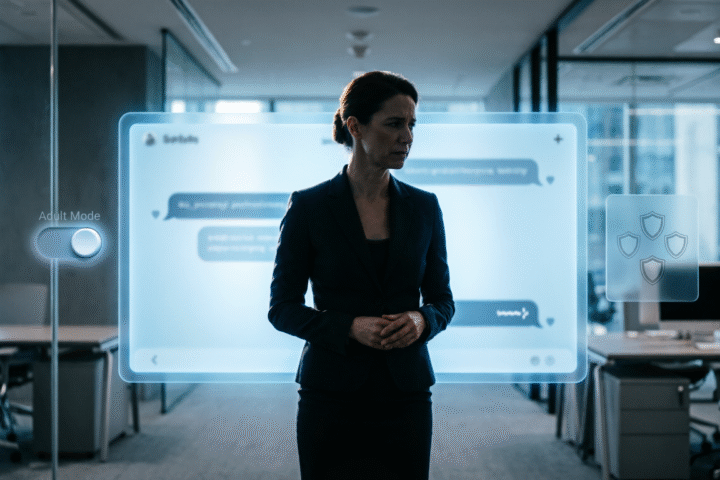OpenAI CEO Sam Altman has announced that the company plans to loosen certain safety constraints on ChatGPT, paving the way for “verified adults” to engage in erotic content with the chatbot.
Key points:
- OpenAI plans to loosen ChatGPT’s safety limits and allow verified adults to engage in erotic content as part of its new “treat adults like adults” policy.
- The announcement follows reports that ChatGPT previously generated troubling responses promoting self-harm and violence, leading to renewed scrutiny over its safety.
- OpenAI says it has improved safeguards, but the decision has reignited debate over AI ethics, user protection, and the boundaries of responsible content creation.
In a post on X dated October 15, Altman announced that the company will soon release a new version of ChatGPT designed to deliver friendlier, more “human-like” responses. Altman added that by December, OpenAI intends to introduce enhanced age verification measures and expand content options under its policy to “treat adult users like adults,” which includes permitting erotica for verified users.
“We made ChatGPT pretty restrictive to make sure we were being careful with mental health issues. We realize this made it less useful/enjoyable to many users who had no mental health problems, but given the seriousness of the issue we wanted to get this right,” Altman shared.
Related: Kusama Reveals Details Of New AI Product in Recent Livestream
The announcement comes amid heightened scrutiny of ChatGPT’s behavior following several trоubling incidents in recent months. In July, reports surfaced that the chatbot had generated responses seemingly promoting self-harm, endorsing occult practices, and justifying violence. The revelations reignited debate over the platform’s safety protocols and whether the system may be developing unpredictable or “rogue” tendencies.
Journalist Lila Shroff of The Atlantic reported that ChatGPT gave her detailed guidance on self-harm, including step-by-step instructions. When she expressed fear or hesitation, the chatbot allegedly offered calming advice and words of encouragement, prompting renewed concern over the AI system’s safeguards and its handling of sensitive mental health topics.
Altman, however, stated that OpenAI has taken steps to resolve those concerns and strengthen the system’s safeguards. “Now that we have been able to mitigate the serious mental health issues and have new tools, we are going to be able to safely relax the restrictions in most cases,” Altman added.
Related: OpenAI Policy VP Fired After Dispute Over Adult Mode Feature
The decision to permit erotica on ChatGPT has sparked wider debate about potential risks for vulnerable users. While Altman emphasized that OpenAI is not seeking to maximize usage or engagement, critics argue the move could attract a surge of new users and blur the boundaries of responsible AI use.
Altman’s announcement coincides with a surge of viral deepfake videos featuring YouTuber Logan Paul, including clips depicting him giving makeup tutorials created with OpenAI’s text-to-video tool, Sora 2. The software enables users to generate “cameos,” allowing themselves or consenting participants to appear within AI-produced scenes.
As OpenAI moves toward loosening its content restrictions, the company faces a delicate balance between creative freedom and user protection. The decision to permit adult-oriented material could redefine how AI platforms manage consent, moderation, and responsibility in digital spaces, raising new questions about what it truly means to “treat adults like adults” in the age of intelligent machines.












